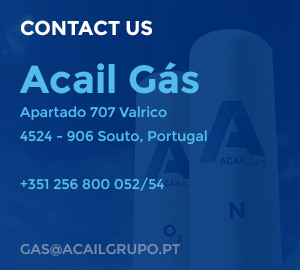
Food
Gases have several applications on food industry, being applied on modified atmosphere, on freezing, on controlled transport and atmosphere, on fruits and vegetables maturation control, on liquid protection and beverages carbonation.
BEVERAGES
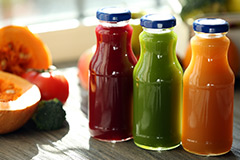
Blanketing / Deoxygenation / Homogenization
Oxygen directly affects the life time of liquids, its properties and its nutritional values. In order to inert and deoxygenate the liquids, gases as Nitrogen, Carbon Dioxide, Argon and correspondent mixtures are used.
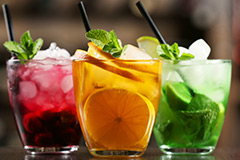
PRESERVATION
Carbon Dioxide and Nitrogen - pure or combined in mixtures - have the ability to prevent beverages from oxidation, therefore the addition of antioxidants or other related additives is unnecessary.
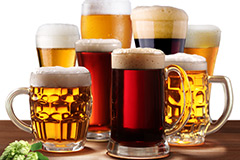
REFRIGERATION
Carbon Dioxide dissolved in sodas, beers and water improves the taste of these drinks, intensifies the flavor and transmits a fresh sensation.
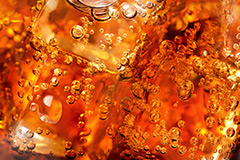
GASIFICATION
Carbon Dioxide is used on the gasification process.

WINE PRODUCTION
In contact with the wine, Oxygen causes enzymatic reactions leading to deterioration and substantial change of color, taste and specially odor. This degradation on wine production is minimized replacing empty spaces with a Nitrogen atmosphere.
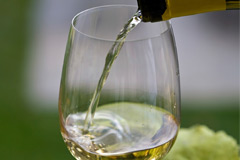
MIXTURES
Nitrogen may be used for, mix or homogenize wines, soft drinks, among other products, preserving the taste and quality of the final product.
MEATS
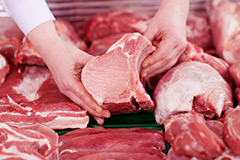
FREEZING AND REFRIGERATION
Our food gases keep the final product quality unaffected. Its use on the productive process is important. We provide gases for:
- Refrigeration or freezing of your product
- Superficial freezing to facilitate and achieve a high quality cut product
- Allow to mix and shape the product
- Increase the product lifetime.
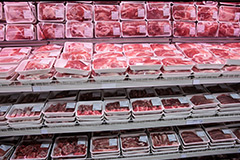
MODIFIED ATMOSPHERE
Fresh meat packaging in controlled atmosphere has a strong inhibitor effect to the bacterial growth.
FISHES
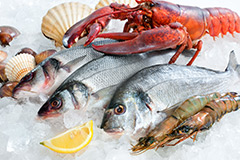
PROCESSING
Fishes and seafood need special care, as the use of food gases, in order to prevent its deterioration during its processing and until it reaches the consumer.
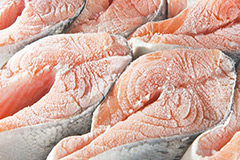
FREEZING AND REFRIGERATION
Fishes have to be subjected to a fast freezing so that they don’t lose their quality and weight. To do so, liquid Nitrogen or Carbon Dioxide is used. Fishes may be submitted to a light cryogenic freezing before the cutting to preserve its shape, facilitate its cutting and prevent the heat during the process.
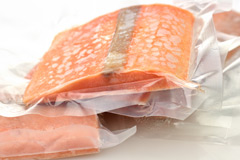
MODIFIED ATMOSPHERE
Modified Atmosphere extends the lifetime of fishes and seafood, slows the deterioration caused by microorganisms and oxidation products. Our food gases inhibit the aerobic bacterial development and avoid the color change and the aerobic microorganisms’ growth, responsible for the toxins production.
Fruits and Vegetables
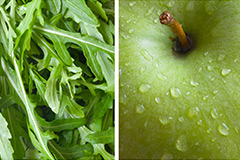
PROCESSING
The appearance and taste of the fruit and of freshly harvested vegetables are preserved through the Modified Atmosphere and cryogenic freezing processes.
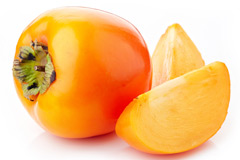
ELIMINATION OF ASTRINGENCY
Carbon Dioxide application on Persimmon allows the elimination of its astringency.
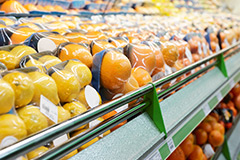
MODIFIED ATMOSPHERE
Modified Atmosphere is very effective on inhibiting fruits and vegetables deterioration mechanisms, since: Inhibits the microbiological, avoids the darkening and the hydration loss and extends the lifetime.

CRYOGENIC FREEZING
Cryogenic Freezing of fruits and vegetables allows: Preserve the quality, maintain the good appearance, the taste and its characteristics unchanged.
SWEETS AND ICE CREAMS
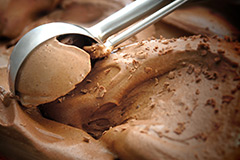
REFRIGERATION AND CRYOGENIC FREEZING
Liquid Nitrogen and Carbon Dioxide are used on refrigeration and cryogenic freezing in the ice cream industry. May be used on the layering of different flavors, avoiding the mixture, on cones freezing by avoiding the absorption of the ice cream moist, on fast freezing of ice cream cakes, allowing a fast unmold.

REFRIGERATION
Pastry products with multiple cream layers, chocolate fillings and general sweets have to refrigerate quickly during the production process with Liquid Nitrogen or Carbon Dioxide, in order to place multiple layers without getting sticky.
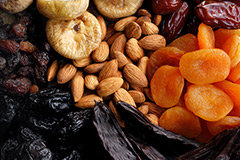
DRIED FOOD
Dried products such as cereals, spices, dried fruits, chestnuts, coffee, tea, milk and chocolate powder, among others, require an inert atmosphere in order to increase the product life, since they have high content of fat and are highly susceptible to oxidation.
DAIRY PRODUCTS
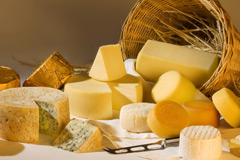
PRESERVATION
Dairy products deterioration is caused by the microbial growth and oxidation. Hard cheeses, with relatively low moisture, are affected by fungal growth, while products with moisture, such as soft and creamy cheeses, are susceptible to fermentation and oxidation.
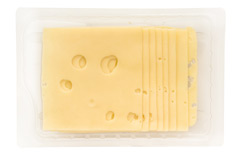
MODIFIED ATMOSPHERE FOR DAIRY PRODUCTS
Carbon Dioxide is the gas used in the packaging of dairy products, since it inhibits or reduces microbial activity. On the other hand, Nitrogen is used on milk powder packaging, for the removal of Oxygen from the package, inerting in order to avoid oxidation and replaces the Carbon Dioxide of the packages that contains products that easily turn sour, such as Chantilly and milk cream.
Bread and Dough
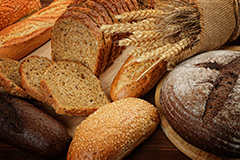
BREAD
The main factors responsible for bakery products deterioration are the fungal growth and chemical decomposition. Nitrogen and Carbon Dioxide are used to achieve a Modified Atmosphere increasing the lifetime due to the decreasing of fungi growth and to the loss or gain of moist, on the bakery dough refrigeration due to the delay of the fermentation process, on the refrigeration after the oven outlet in order to avoid the formation of condensation (moist) on the packaging and on Cryogenic Freezing.
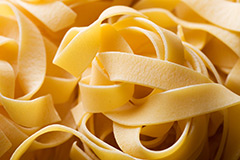
DOUGH
With the Modified Atmosphere occurs the fungi inhibition growth (mold) on the fresh dough, as well as oxidation, therefore Carbon Dioxide and Nitrogen are used in order to increase its lifetime.
PREPARATION AND CONSERVATION
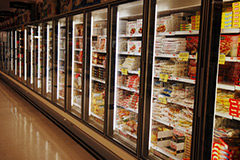
Prepared Food
To promptly freeze or refrigerate pre-prepared food, cold tunnels with Liquid Nitrogen or Carbon Dioxide are used, in order to increase the quality and the processing time.
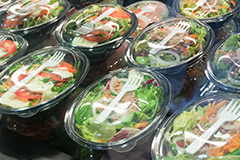
PACKAGING
By placing a drop of Liquid Nitrogen continuously on the package, immediately before receive the product and be closed, it occurs the purge of atmospheric air and the pressurization, therefore ensuring the package stiffness and the protection against oxidation.
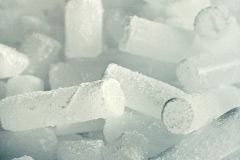
DRY ICE
Dry Ice provides the cold at -78° C, transforming into gas without leaving solid or liquid residues. Respects the cold chain of fresh or frozen food, allows the transport at a controlled temperature, harvest refrigeration, cryogenic cleanness and may be used to special effects.
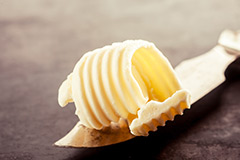
HYDROGENATION
Hydrogen helps converting liquid oils into semi-solid or plastic fats, enough to produce margarines, causing increased stability to oxidation, taste and odor improvement as well as product life increasing.
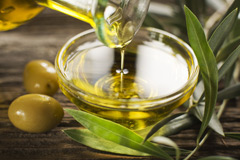
OILS AND FATS
The quality of oils and fats, or food with high content of oils and fats, depends on the oxidation control to avoid the deterioration of this type of products. Nitrogen is used to prevent that oxidation.
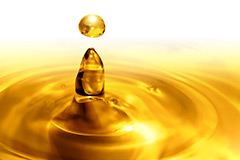
Sparging
The sparging process is the placement of gaseous Nitrogen, promoting the entrainment of oxygen dissolved on the oil, decreasing the oxidative effect.
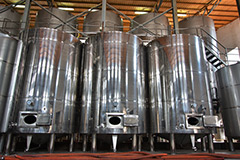
Tanks inertization
The air existent in the free space of the storage tanks is replaced by gaseous Nitrogen, creating a protective atmosphere, extending, therefore, the product life time in stock.
Be our client
Part of a vast network of partners and customers who benefit from our products and services
Know more